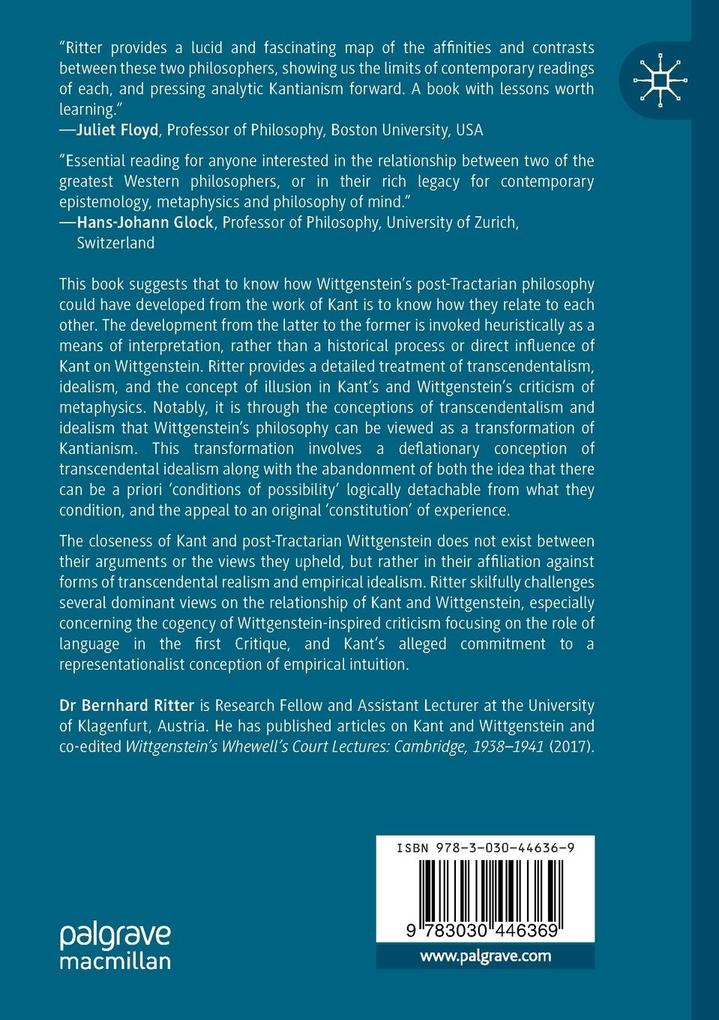This book suggests that to know how Wittgenstein's post-Tractarian philosophy could have developed from the work of Kant is to know how they relate to each other. The development from the latter to the former is invoked heuristically as a means of interpretation, rather than a historical process or direct influence of Kant on Wittgenstein. Ritter provides a detailed treatment of transcendentalism, idealism, and the concept of illusion in Kant's and Wittgenstein's criticism of metaphysics. Notably, it is through the conceptions of transcendentalism and idealism that Wittgenstein's philosophy can be viewed as a transformation of Kantianism. This transformation involves a deflationary conception of transcendental idealism along with the abandonment of both the idea that there can be a priori 'conditions of possibility' logically detachable from what they condition, and the appeal to an original 'constitution' of experience.
The closeness of Kant and post-Tractarian Wittgenstein does not exist between their arguments or the views they upheld, but rather in their affiliation against forms of transcendental realism and empirical idealism. Ritter skilfully challenges several dominant views on the relationship of Kant and Wittgenstein, especially concerning the cogency of Wittgenstein-inspired criticism focusing on the role of language in the first Critique, and Kant's alleged commitment to a representationalist conception of empirical intuition.
Inhaltsverzeichnis
Part I: Mirages of Metaphysical Language
. - 1. Wittgenstein on ' Grammatical' and ' Metaphysical' Propositions. - 2. The Question of Linguistic Idealism. - 3. Wittgenstein and What We Can Say. - 4. Language and Communication in Kant' s Theoretical Philosophy. - 5. Transcendental Illusion in the First Antinomial Conflict. - 6. Kant' s Transcendental Idealism. -
Part II: Kant' s Argument Against Problematic Idealism
. - 7. The Position of Problematic Idealism. - 8. Scepticism and Idealism in Descartes. - 9. Transcendental Proofs and Indubitability. - 10. The Subject in the Refutation of Idealism. - 11. Transcendental Realism and the Fourth A-Paralogism. -
Part III: Wittgenstein: Idealism, Solipsism, and Scepticism
. - 12. Solipsism in
The Blue Book
. - 13. Use as Subject and Use as Object of ' I' Revisited. - 14. Idealism/Solipsism in the
Investigations
. - 15.
On Certainty
and Metaphysical Doubt. -
Part IV: Limits of Transcendentalism
. - 16. Kant' s Second Analogy and the Schema of Causality. - 17. ' Perception' in §26 of the Transcendental Deduction. - 18. Wittgenstein on Private Ostensive Definition. - 19. A Prussian Wittgenstein and a Viennese Kant? .




































